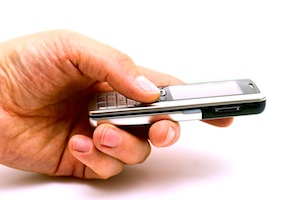Last updated April 12, 2019
 At a point in history where Americans have at their disposal more forms of communication than ever before, pollsters are finding it harder and harder to reach potential survey respondents and be able to persuade them to take part in surveys. The response rate for the average telephone survey has fallen from a high of 36 per cent fifteen years ago back in1997 to just nine per cent today, according to the Pew Research Center for the People and the Press.
At a point in history where Americans have at their disposal more forms of communication than ever before, pollsters are finding it harder and harder to reach potential survey respondents and be able to persuade them to take part in surveys. The response rate for the average telephone survey has fallen from a high of 36 per cent fifteen years ago back in1997 to just nine per cent today, according to the Pew Research Center for the People and the Press.
The trend is a reflection of vital differences between how people see new and old cell phones and how they see landlines, believes Ray Scheele, Ball State University political science professor and the co-director of the Bowen Center for Public Affairs at the school. Scheele says that many of the people who have completely replaced their landline with cell phones did that precisely to make it more difficult for others to contact them. Cell phone users also have a tendency to view the devices for use for outgoing rather than incoming calls and are much less likely to be interested in responding to polls. “Cell phones have complicated this quite a bit,” he notes.
Incentives are now being used to try to entice people to be more receptive to respond to polls, according to Valparaiso University’s Political Science Department chairman Larry Baas, with students polled on the topic of drug use offered the opportunity to win gift cards.